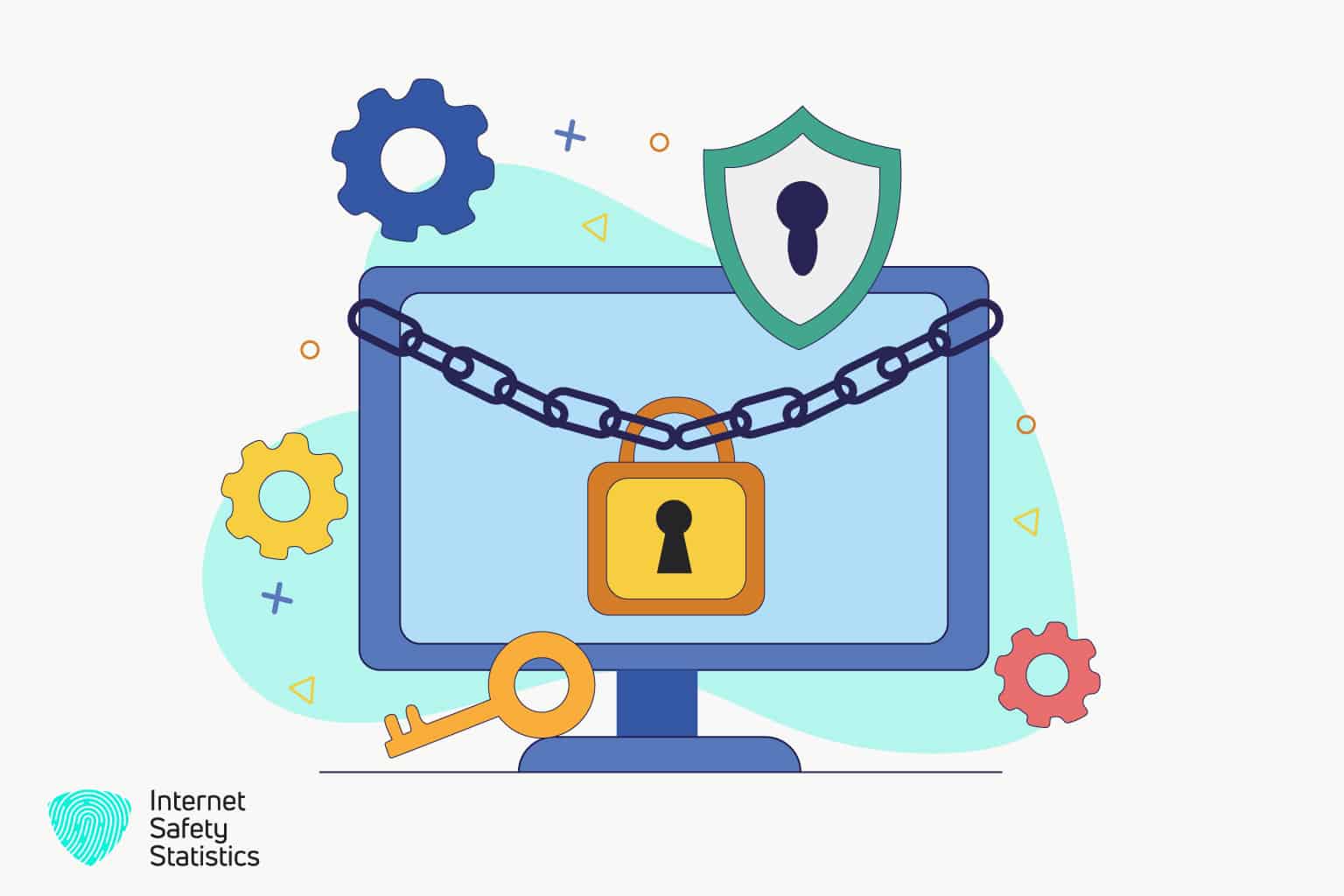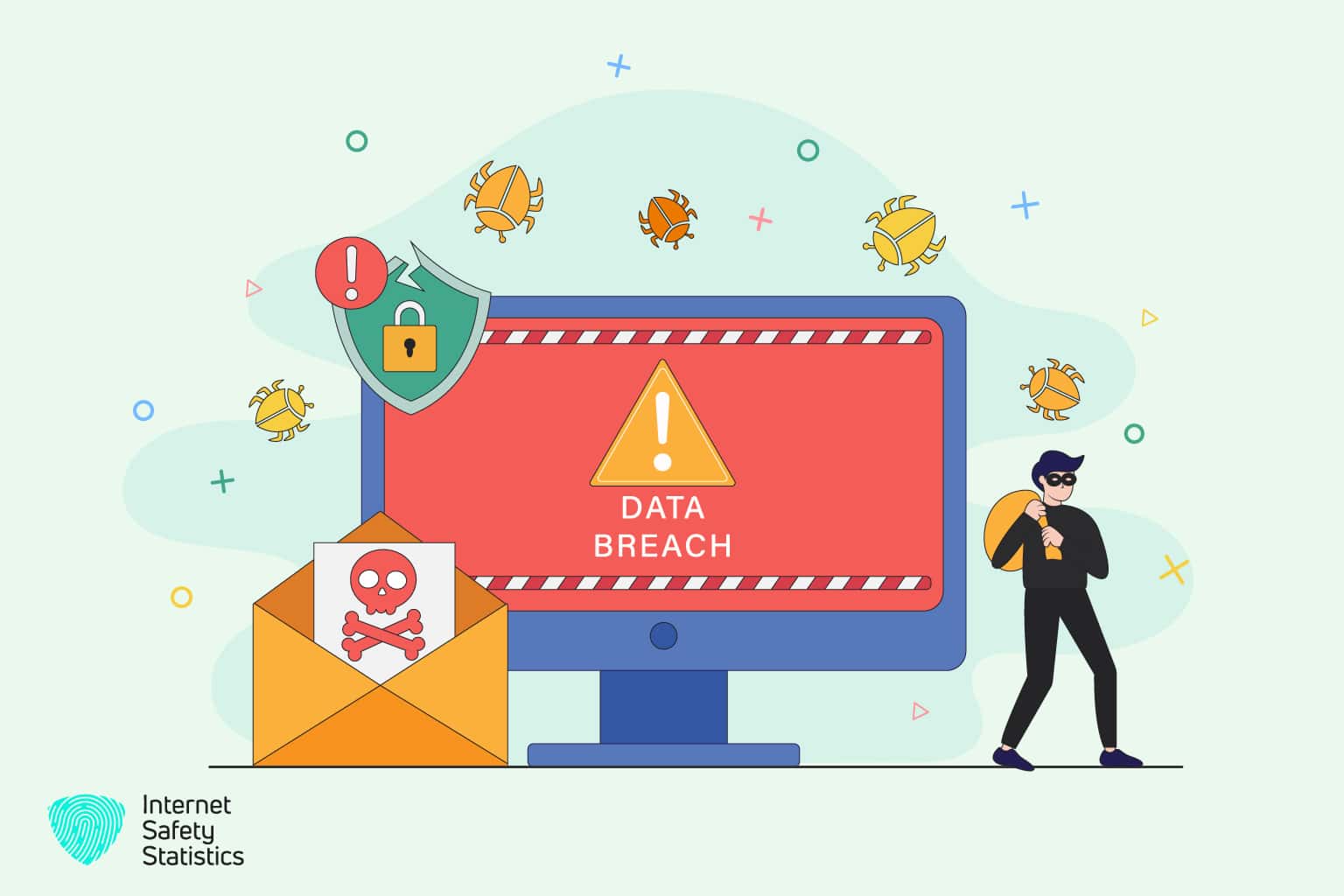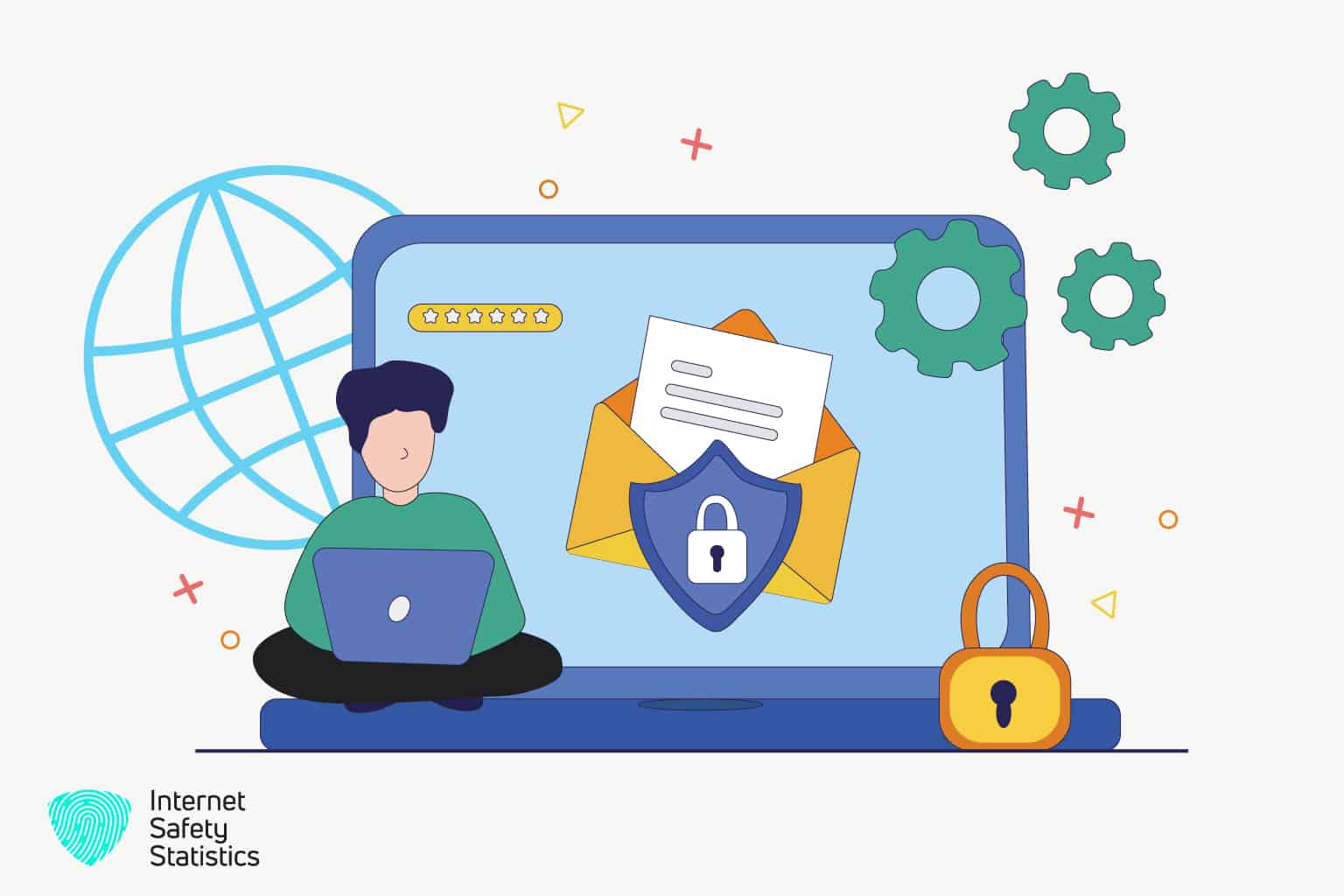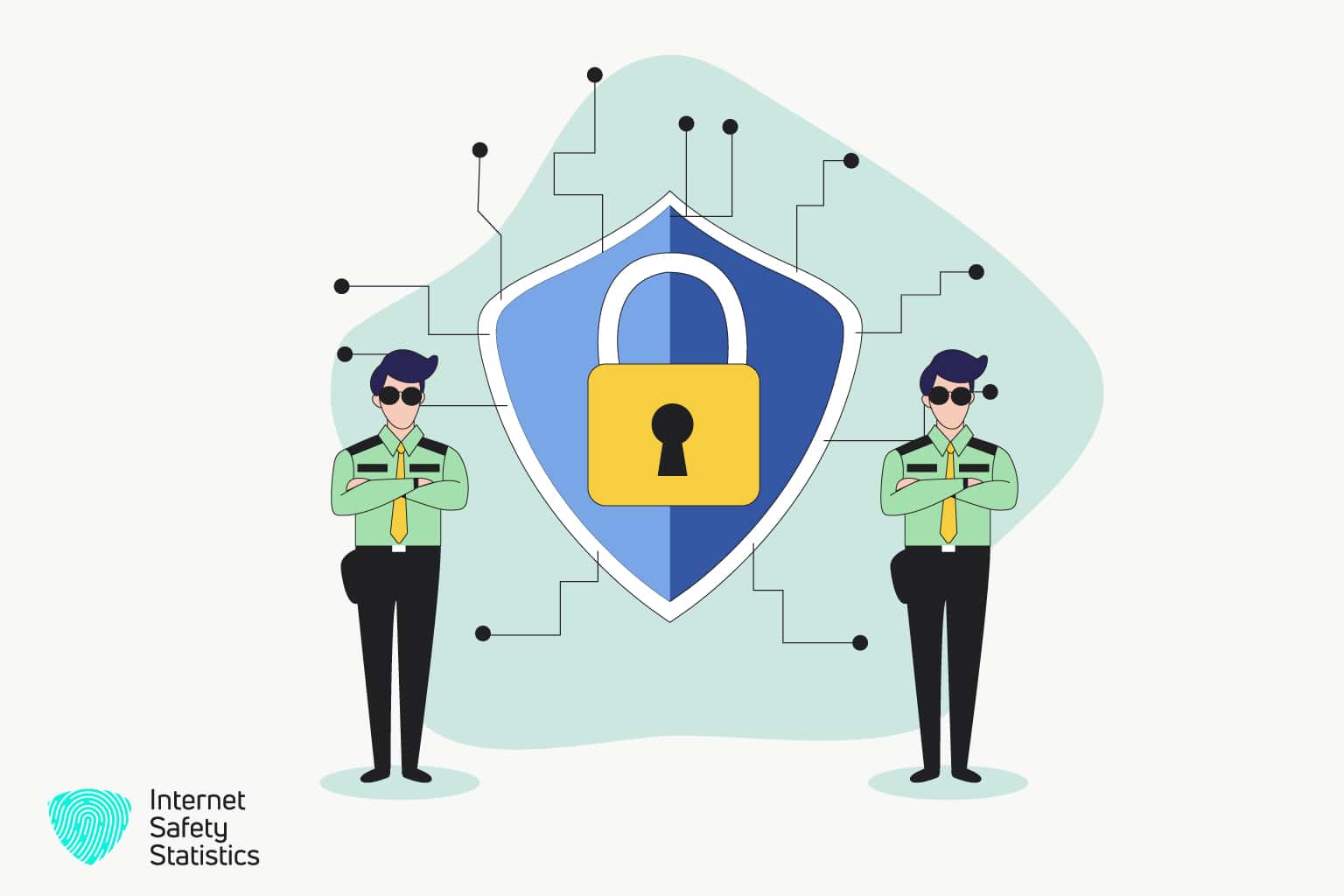
Cyber security is the process of using internet protocols to protect digital systems, networks and individuals against cyber and digital attacks. With the evolving world of technology and reliance on the cyber space for many of the daily life operations, this field of security has become increasingly important in the past years.
This is what we will be talking about in this article; the importance of Cyber Security awareness and training.
Why is Cyber Security Very Important?
Technology is only going forward, whether with new inventions or adding to the complexity of this virtual universe. The use of technological advances facilitates many every day operations for everyone; from first-level businesses to individuals. As criminals found the loopholes in the cyber world to execute their harmful plans, the need for protection in this new world presented itself.
The continuous development of technology isn’t the only factor calling for cyber security, but the fact that human laws and political systems are still lacking the necessary and comprehensive regulations to protect users of the virtual world from cybercrime. In short, they still can’t keep up.
This is why it starts with you, with everyone to take the necessary measures to protect themselves and loved ones from cybercrime, and most importantly, to report suspected or actual cybercrime to the competent authority.
Importance of Cyber Security
1. For Individuals:
There are many applications used today that store your credit card information. No matter how much you trust these applications or their providers, you can never be too sure. These applications and websites have become an easy target for cybercriminals to obtain quick gains as they can drain the funds from your accounts directly and it would look like you did it.
2. For Kids:
Safety for children online cannot be stressed enough. Current and future generations are born in a technological world, it’s inevitable they depend on technology more than we ever did.
It’s important to emphasise when allowing your kids to use the internet to never share any personal information about themselves, where they live, their school, phone number, password or birthday.
Your kids must know they can come to you in anything, so if they’ve ever encountered a situation online where they didn’t feel comfortable or felt afraid, they’d come to you. Talk with them about what is allowed and what isn’t allowed to do or share in cyberspace.
3. For Businesses:
Instead of stealing your online-stored data, perpetrators can target the company that asked for your information; since this information is stored on their servers. Like when you buy something from an online retailer and you pay using your credit card.
Businesses can also be a target for Identity Theft and Security Breaches where other sensitive data about the business can be stolen and either be sold on the black market or even used as a means for blackmail, extortion and even fraud.
4. For Banks:
Developing banking systems in the past years has been dependent on the usage of computer and internet systems, hence a significant majority of information from the bank data is stored online. Not just that, the backing-up of the bank’s data is also stored online.
This provides cybercriminals with multiple targets to gain illicit money through tampering with stock exchange rates for example. This sensitive banking information can even be sold in the black market, earning the perpetrators thousands of dollars.
World financial institutions such as SWIFT, Investment Banks and the U.S Securities and Exchange Commission have been active targets of cyberattacks in the past. Automated Time Machines or ATM’s have become one of the latest targets to be added to the list, as the machine stores credit card information, the cybercriminals can easily steal the stored information.
5. For the Modern Day Society:
Hospitals, car systems, aviation systems and even the government systems can all be targets for cybercrime. Our societies have been rapidly changing with more dependency on what’s called the Internet of Things or IoT, which allows for more integration of technology in everyday rituals.
IoT creates more opportunities of integration between the physical and virtual world, such as using your mobile phone to lock or unlock your house. This is seriously dangerous; a perpetrator can hack your phone, unlock your house and steal more than just your credit card information. This brings crime from the cyber world into the real world, creating what’s known as a cyber-kinetic attack.
Traditionally, cyberattacks on hospitals aim at stealing medical records, altering or tampering with existing records for unlawful purposes. However, many hospitals have reported great disruptions in their diagnostic equipment and even the medical devices designed to help or assist patience such as pacemakers have been tampered with at times.
Government systems such as traffic lights, police communications, personnel and student records and even military systems are common targets for cyberattacks. Even passports and personal IDs used to gain access or use government services are a target for potential data cloning.

Types of Cyber Security Threats
1. Phishing:
Phishing is disguising a fraud and sending it to the victim via text message, email, a website or an online advert. This crime aims at stealing your personal data such as your credit card information and gain money illegally.
2. Malware:
This is a software designed by the perpetrator that aims at accessing computers without authorization. You can encounter the program, without knowing, by downloading programs from untrusted sources or by browsing suspicious websites.
3. Ransomware:
Ransomware is a software designed to prevent the victim from accessing their computer until a specified ransom is paid. However, the perpetrator can corrupt your software or data on your computer, that even when you pay the ransom, it’s not guaranteed you’ll be able to recover them.
4. Social Engineering:
Social Engineering is a luring tactic to trick you into sharing personal information about you, such as credit card details. This form of cyber security threat can use any of the previous forms to add credibility to the scam.
Why is Cyber Security Training Important?
Cyber Security Training is essential specially for businesses or employees in different job fields. While it is the IT Department’s job to install and secure the business’s operating system, basic cyber security training helps the employees avoid falling into easily-avoidable cyber attacks.
Taking some of the load off the IT Department will give them more time to fortify the defenses of the company system, they can test new methods and upgrade the defense strategy and avoid having gaps in the system.
Why is a Cyber Security Awareness Program Important?
A study in 2018 showed that the reason behind 84% of the information security risk is employee negligence. This shows that despite the fact that employees are a business’s greatest asset, they are also its biggest security risk.
Cyber Security courses are not just for the IT Team, but for the entire workforce. As Cyber Security is a joint responsibility, businesses have several essential points to consider when preparing a Cyber Security Program for their employees. These being:
1. Device Security:
Many employees bring their own mobiles or computers into the office to use for work. They use the public network at the workplace on these devices to access company sensitive information. This does not only put the user at the risk of cyberattack on their personal and corporate data, but also their device can get stolen if they leave it unattended.
2. Passwords, Access and Secure Network Connection:
Creating strong passwords is a vital topic to discuss with your employees, since many people don’t realize the importance of this point in particular. If you are granted access to some of the company’s sensitive data, you must make sure your account is not an easy target to hit.
Do not access your corporate account if you are using a public network that is not secure, such as out in a public restaurant or café. A public network at the workplace is secured and protected by the IT tactics and defensive strategies.
3. Threat of Social Engineering and Phishing:
Aimed at stealing sensitive information such as credit card data through scam texts, emails, adverts or websites, Phishing is the most common form of cybercrime. Training your employees to detect Phishing attempts and report them to the IT Department. While falling for this threat can be the employee’s fault, it might alert the IT team to a possible gap in the defense tactic.
4. How to React to a Cybersecurity Threat:
An important aspect of Cybersecurity Awareness is what to do when encountering a cybersecurity threat. Train your employees how to detect a cybersecurity breach and what to do from then on. With the help of your IT Team and create a reaction plan that every employee must follow in the event of an attack.
Why is a Cyber Security Career Important?
There are many jobs in the IT Team to consider, the cyber security career is one of them. The benefits of hiring specialists to help protect your data are limitless. However, the benefits of considering a career in Cyber Security are also countless.

1. Real Impact:
A career in cybersecurity helps you have a real impact on others, out in the physical world. Since cyber security threats are not only in the virtual world and can extend out to the actual world, such as the case of the Equifax Hack that impacted over 145 million Americans benefiting from pacemakers. Imagine being able to protect the hearts of others, literally!
2. Variety:
Technology is limitless and so are the threats emanating from its usage. Cyber Security professionals get to see and work with advanced technology that many others can only dream of. It takes time to build such a professional career and the more companies, systems and technologies you work with, the better knowledge of cybersecurity and its threats you will have.
3. Unlimited Growth:
The ever-growing virtual world offers your unlimited opportunities to learn and develop which is great for advancing your career. A career in cybersecurity will help you keep up to all the updates in the technological world; it’s a requirement to keep ahead in this career path.
You can aim to be a Chief Information Security Officer in a corporation or work directly with the technologies that create new threats and keep improving the security defenses. The only growth limitation here is your will.
4. Solving Puzzles:
The cyber world might be all ones and zeros, but these two numbers can create infinite cyber security challenges. Each new technological invention creates a new level of security problems that must be dealt with. Almost every day, you will find a new technological puzzle waiting for you to solve it.
Is there such a thing as Security Guards in Cyber Security? And why are they important?
A Security Guard in Cyber Security can be a device or a system through which computers connected to different networks are able to connect securely. It has some similarities to a firewall, except that a security guard does not limit access to some websites or services. Instead, it allows secure usage of these websites and services.
The Security Guard acts as a buffer between two connected networks, or more, where one or more of the networks is private and the others are public. The guard will secure the information stored on the private network from any attacks coming its way from the public network.
What a Security Guard does is control what gets shared from the data stored on the protected network and protect the confidentiality of such information. They scan the data for malware, validate digital signatures and double-checks encrypted content.
Why is it Important to Improve Cyber Security? And How?
The need for Cyber Security is parallel to the development of technology and improvement to this field is a must. There are several steps to take in order to improve Cyber Security:

1. Get Protection:
Be sure to have the appropriate anti-virus and firewall programs and test their effectiveness in blocking unwanted access. Make sure that your workplace network is protected and have a strong router password.
2. Keep Your Software Updated:
Your anti-virus and your software programs must all be up to date. Make sure to have your update settings are set for automatic updates, so any updates are downloaded right away once they become available.
3. Back-Up Your Data:
Always have a copy of your data stored securely, and it’s preferable the backup isn’t stored online so it doesn’t get damaged in the case of an attack, such as storing it on a portable storage unit. Set a specified time for the back-up operation, such as once a week for example and use data encryption for further protection.
4. Train Your Employees:
Ensure that your employees know how to spot suspicious emails or websites and in the event this happens, be sure you’ve set a strategy to follow in the case of an attack. Limit their access to systems only needed to perform their job and limit their ability to download any software, except after approval.
5. Strong Authentication:
This can be summed up in using strong ID names and passwords for all devices; computers, mobile phones and accounts. Using two-factor authentication is an additional step to control who gets access to your network.
6. Secure Business Smartphones:
If smartphones are used in the workplace, do ask your employees to password protect their phones, specially if they contain sensitive information or data pertaining to the business. Use encryption to protect employee data and emphasise the installation of security applications on these phones to protect them.
7. Be Careful How You Handle Online Payments:
Don’t use any means for online payments, be sure to consult your bank on the best and most secure means of processing online payments. Your bank should recommend the most validated and anti-fraud means.
8. Prevention is Best:
Keep an eye on your system all the time, make an appointment to check with your bank every week for example, to look for any irregular activity on your account. Check with your IT Team from time to time to learn about any threats they’ve encountered.
Why is Linux Important for Cyber Security?
Linux is an operating system, similar to the more common Windows, Mac OS and iOS and is considered one of the best known and most used operating systems in the world. This operating system is an open source operating system, meaning that anyone can edit or modify the system and share the edited copy with others, as long as they do so under the Linux license.
Linux’s importance in Cyber Security stems from the fact it provides more advanced tools to test and assess network security. One of these tools is the Kali Linux, which is essential for Cybersecurity professionals to perform penetration tests or do a system vulnerability test.
There are five important features Linux provides for Cybersecurity Professionals:
1. Linux System and Network Administration:
The ability to perform basic operations such as penetrations tests, security monitoring and security appliance.
2. SELinux and AppArmor:
These are two security modules with a focus on application in the Linux operating system that are highly effective in fending off cyberattacks. It’s estimated that almost all Linux servers and networks use SELinux and AppArmor to secure the use of applications and prevent any tasks that may put the system or the data.
3. Regular Expressions:
When used with some Linux utilities, Regular Expressions searches the data of the system, files, logs and even logs on Windows servers, are searched for key events in order to narrow down any events that might cause or have already caused a security breach in the system.
4. Open-Source Security Tools:
Many open-source security tools are already installed on variations such as the Kali Linux while some other tools can be installed manually when there’s a need. These tools are used by cybersecurity professionals to perfume many operations like cybersecurity analysis or forensics.
5. Bash Scripting:
A Bash shell script is where you store all the commands you’ve used before to perform any group of operations on the system, such as cybersecurity analysis or administrative commands, for future usage. In the case of any cybersecurity matter in the future, you can resort back to your Bash shell script and use the previous commands used in similar previous situations.
Why is Steganography Important for Cyber Security?
Steganography is hiding a secret in something visible, such as hiding an important message in a picture for example. Steganography isn’t like cryptography, where you encrypt the message so no one would understand, it’s a form of hiding information in a clever way.
While steganography can be used to deliver secret messages, they can be used by attackers to embed a secret script in an online document for example. Once someone on the internet downloads that document or even opens it, the secret script is activated and installs an application on the computer that grabs online viruses and compromising the victim’s computer.
Over the past years, the increased use of steganography in conducting cyberattacks has prompted professionals to try and analyse the tactics, techniques and procedures used by attackers to prevent attacks. As a result, more anti-virus applications are able to identify steganographic applications.
This battle is forever going, as steganography is used by both the attackers to hide their attacks, and by the security professionals working around the clock to identify new signatures.
The importance of Cyber Security will only continue to increase, as long as technology keeps on developing. It’s crucial to know how to protect yourself, your loved ones and your business from cybercrime.
